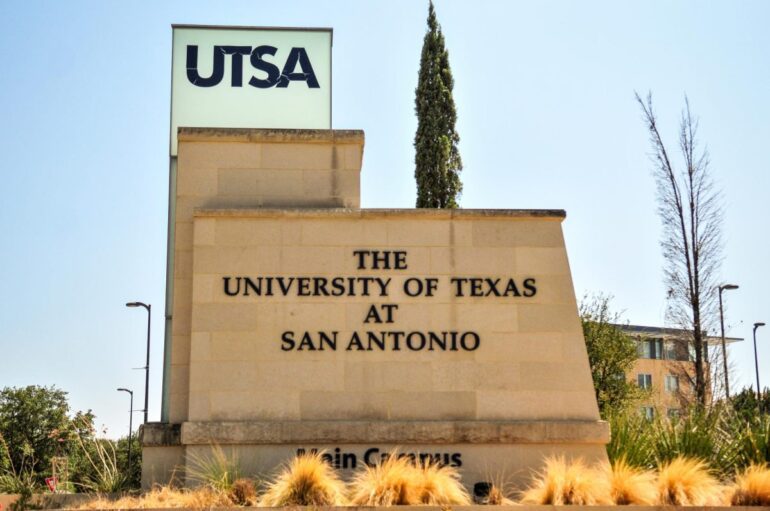TL;DR:
- UTSA announces the creation of a groundbreaking college focused on AI, cybersecurity, computing, and data science.
- The initiative reflects UTSA’s commitment to innovation and aligns with the evolving tech landscape.
- The demand for AI, data science, and cybersecurity professionals is soaring.
- Texas, in particular, is witnessing significant growth in AI and data science jobs.
- A task force has been formed to plan and structure the new college, emphasizing transdisciplinary collaboration.
- UTSA has a strong track record in these fields, with notable achievements in data science.
Main AI News:
UTSA has unveiled a visionary endeavor to reshape its academic landscape by establishing a cutting-edge college dedicated to the realms of artificial intelligence (AI), cybersecurity, computing, data science, and associated disciplines. This forward-thinking initiative exemplifies UTSA’s unwavering commitment to innovation and academic excellence, positioning the university at the forefront of the rapidly evolving landscape of advanced technologies.
The burgeoning demand for AI, data science, computing, and cybersecurity professionals underscores the profound impact of these fields in the fifth industrial revolution. UTSA President Taylor Eighmy emphasized, “The convergence of AI, data science, computing, and cybersecurity signifies a very forward-looking endeavor as we embrace the fifth industrial revolution, now especially propelled by AI advancements. These disciplines will remain intertwined for the foreseeable future. With an escalating demand for emerging technologies, their applications, and the demand for a skilled workforce, this new college will greatly accelerate UTSA’s economic and workforce impact here in San Antonio, across Texas, and nationally.”
The rapid proliferation of AI applications has ushered in unprecedented advancements across diverse sectors such as healthcare, finance, and manufacturing. Organizations are harnessing the transformative power of AI and machine learning to optimize processes and stimulate innovation. In this dynamic landscape, the demand for highly skilled professionals is surging to unprecedented heights.
According to Cybersecurity Ventures, there are approximately 3.5 million open positions globally in cybersecurity and data science, highlighting the critical need for expertise in safeguarding digital assets and deriving valuable insights from vast datasets. In Texas alone, there are over 46,000 job opportunities in these fields, as reported by Cyberseek.
Furthermore, Computerworld’s analysis indicates a substantial surge in job creation, with an estimated five million roles emerging in 2022. These roles span a spectrum of disciplines, including data science, AI/machine learning, cloud computing, cybersecurity, product management, and digital social media. Looking ahead, the U.S. Bureau of Labor Statistics projects a 36% increase in data scientist jobs and a 35% increase in cybersecurity jobs nationally over the next decade.
In Texas, the growth trajectory is particularly impressive, with a projected 26.5% increase in AI and data science jobs, underscoring the state’s pivotal role in shaping the future workforce in these transformative fields.
In response to this visionary initiative, Interim Provost and Senior Vice President for Academic Affairs, Heather Shipley, announced the establishment of the AI, Cyber, Computing, and Data Science Planning Advisory Task Force. This task force is entrusted with conducting a comprehensive planning exercise to pave the way for the new college. Their responsibilities include surveying student interests, assessing regional workforce needs, exploring multidisciplinary research opportunities, and proposing an organizational structure that aligns these programs to enhance student success, career readiness, and transdisciplinary research.
Championed by Jonathon Halbesleben, Dean of the Carlos Alvarez College of Business, and Jianwei Niu, Interim Dean of University College, this task force will play a pivotal role in steering this transformative initiative. David Mongeau, Founding Director of the School of Data Science, will facilitate external benchmarking and outreach through community charettes with San Antonio stakeholders, as well as surveying best practices at peer and aspiring institutions.
Heather Shipley highlighted that similar initiatives have previously led to the establishment of the College for Health, Community, and Policy in 2019, and the Margie and Bill Klesse College of Engineering and Integrated Design in 2021.
“Ensuring UTSA students are well-prepared for their chosen careers in the dynamic transdisciplinary workforce is our most important responsibility,” Shipley affirmed. “This initiative is driven by our commitment to fostering innovation, advancing research, and delivering educational excellence across related disciplines. More specifically, it seeks to amplify synergies among academic and research domains, fostering the transdisciplinary collaboration that is critical to developing our students’ ability to tackle complex, multifaceted challenges as the future leaders in these fields.”
UTSA has consistently been a trailblazer in the fields of AI, cyber, computing, and data science. The School of Data Science, established in 2018, stands as the only school of its kind at a Carnegie R1 U.S. Hispanic Serving Institution. The School has achieved remarkable milestones, including securing $1.2 million for student training and research programs, hosting the national Academic Data Science Alliance annual meeting in 2023, and unveiling a new certificate program in data engineering, set to commence this summer. The School’s hub, San Pedro I, located in downtown San Antonio, now accommodates more than 1,000 students and researchers.
Veronica Salazar, UTSA’s Chief Enterprise Development Officer and Senior Vice President for Business Affairs, underscored the strategic alignment of this initiative with UTSA’s investment in downtown San Antonio and the city’s tech corridor. She stated, “Through this initiative, we are not only investing in the intellectual capital of our students but also contributing to the growth and vibrancy of downtown San Antonio. This initiative is a testament to UTSA’s dedication to providing a dynamic hub in our city’s core for education, research, and engagement, further solidifying our role as a key player in San Antonio’s development.”
Conclusion:
UTSA’s move to establish a new college in AI, cybersecurity, computing, and data science signifies a strategic response to the surging demand for tech professionals in an ever-evolving market. This initiative positions UTSA as a key player in shaping the future workforce, contributing to downtown San Antonio’s growth, and fostering innovation and research collaboration. It is a significant development that underscores the university’s commitment to academic excellence and aligns with the growing importance of these fields in the global market.

